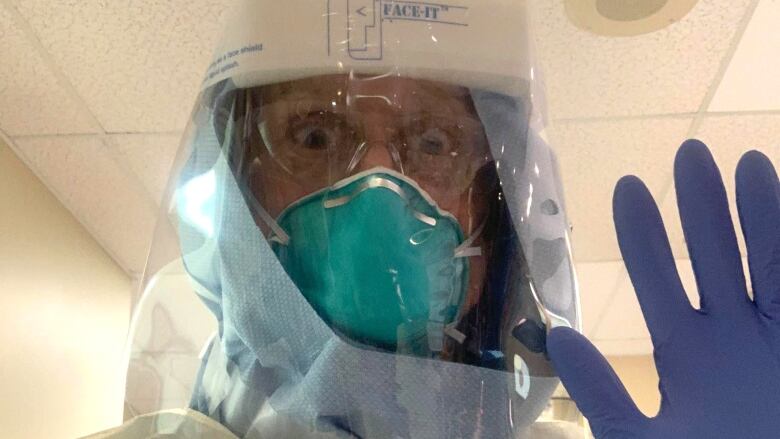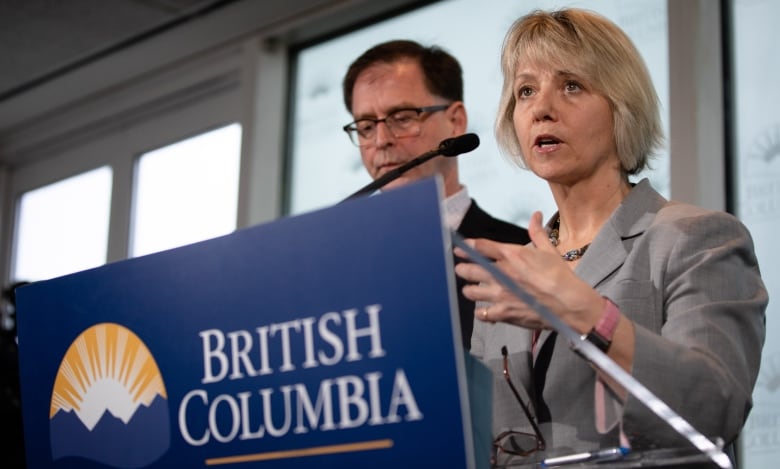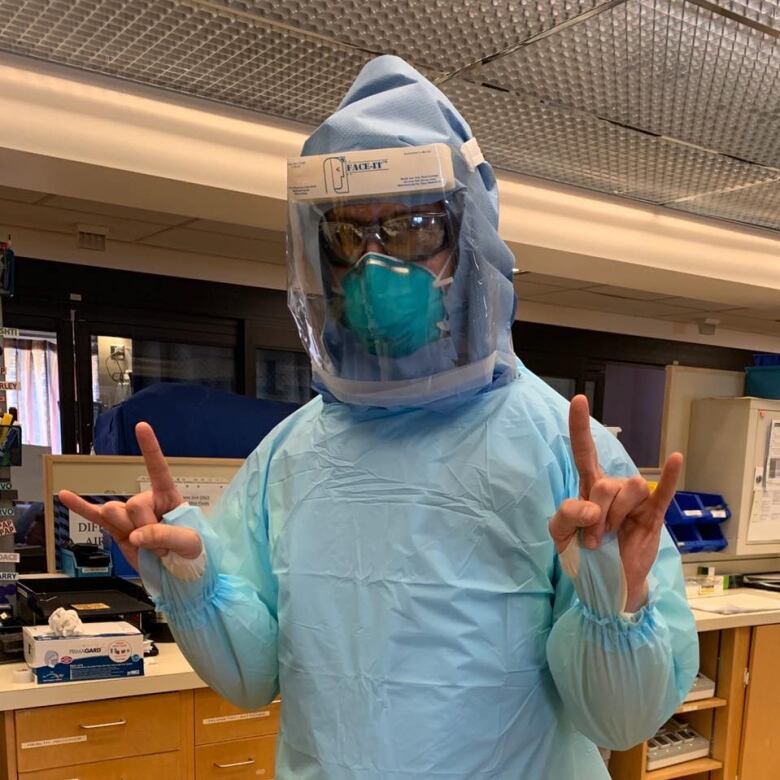ER doctor says B.C. not testing enough for COVID-19, provincial health officer disagrees
Dr. Bonnie Henry says most people are self-isolating as required even if not tested

An emergency room doctor on the front lines of the fight against COVID-19 says British Columbia isn't testing enough, and worries the public might become complacent just when physical distancing measures are most needed to curb the disease's spread.
Dr. Sean Wormsbecker whoworks atRoyal Columbian Hospital in New Westminster, B.C., and Eagle Ridge Hospital in Port Moody posted a YouTube videothis weekend outlining his concerns.
Since the novel coronavirus began spreading in B.C., he says he's sent four cases from the ER to the intensive care unit, and other confirmed casesto the general wards of the hospitals.
Every shift, he says he sends three or four likely COVID-19 cases home, telling them to self-quarantine for 14 days, without testing as he's been told to do.
"That scares me," he said in the video.
"Ten years of clinical practice have taught me that unfortunately patients aren't consistent in following direction.
"Often what's heard, no matter how we say it, is that if we're not testing you, we're not really taking you seriously, and that's not the case."
On Monday, B.C. provincial health officer Dr. Bonnie Henry responded to Wormsbecker'svideo, defending the province's testing strategy and saying most people are following instructions to self-isolate.
'I actually don't agree with that': Dr. Henry
Provincial health officer Dr. Bonnie Henry has repeatedly said that testing is available for those who need it, butnot everyone with symptoms needs testing, especially if the advice won't change to go home, and self-isolate for 14 days.
During Monday's update, she firmly disagreed with Wormsbecker'sclaim people who aren't tested aren't taking their symptoms seriously.
"I actually don't agree with that," said Henry.
"Having been on the front lines with my colleagues in public health who are actually talking to these people who are at home and who are self-isolating at home most people are absolutely doing what we need them to do."
B.C. has increased testing capacity, running upwards of 3,000 tests per day, though it has limited tests to a few categories of people:health-care workers, people in hospital or who may need hospitalization, those in long-term care homes, and those who are part of an outbreak investigation by health-care officials.
"We're focusing on those most likely to have this disease and those most likely to need health care or hospital care. So that is an important strategy," said Henry.
That, of course, means there are more people with the disease than the official tally of confirmed cases in B.C.,which sat at 970 as of Monday.

But beyond the count, the director-general of the WHO has also recommendedtesting every suspected case, and tracing their contacts, as the "backbone" of a response to contain COVID-19.
Wormsbecker agrees.
"There's just the simple factor of human nature," he said Sunday in an interview with CBC News before an overnight ER shift.
"People don't take things as seriously when they feel that they're not prioritized."
When patients are tested, and tracked, he thinks they are more likely to comply with instructions to isolate.
"They get a call from a public health nurse, they are told to quarantine, and then if anyone around them tests positive they can also be contacted by the office, and then they can essentially contain these sort of cluster outbreaks."
'We are not through the storm yet'
Wormsbecker said he decided to speak publicly because he's frustrated, and concerned for the weeks to come.
Already,stress in the ER has been amplified with the constant cleaning of every surface, having to wear personal protective equipment all the time, and restrictions on how medical staff use their masks and face shields, because of limited supply.

"it's not a fun place to be," he said.
"I'm fully accepting that I'm putting my own health at risk, and I'm putting my family's health at risk when Icomehome."
He worries that Friday's message about a "glimmer of hope" that efforts are working to reduce the spread of the disease from Dr. Henry and Health Minister Adrian Dix might be taken the wrong way by British Columbians.
"I'm just not convinced that we're winning on this yet," he said.
"I simply don't want people to let their guard down because we're not at a stage where we can afford to do that. If we start easing up on social distancing, we're going to see harm."
On that, Wormsbecker and the provincial health officer agree.
"We are not through the storm yet. We have not yet reached our peak," Henry said Monday.
"Every person needs to do their bit."
If you have a COVID-19-related story we should pursue that affects British Columbians, please email us atimpact@cbc.ca.












_(720p).jpg)


 OFFICIAL HD MUSIC VIDEO.jpg)
.jpg)



























































































